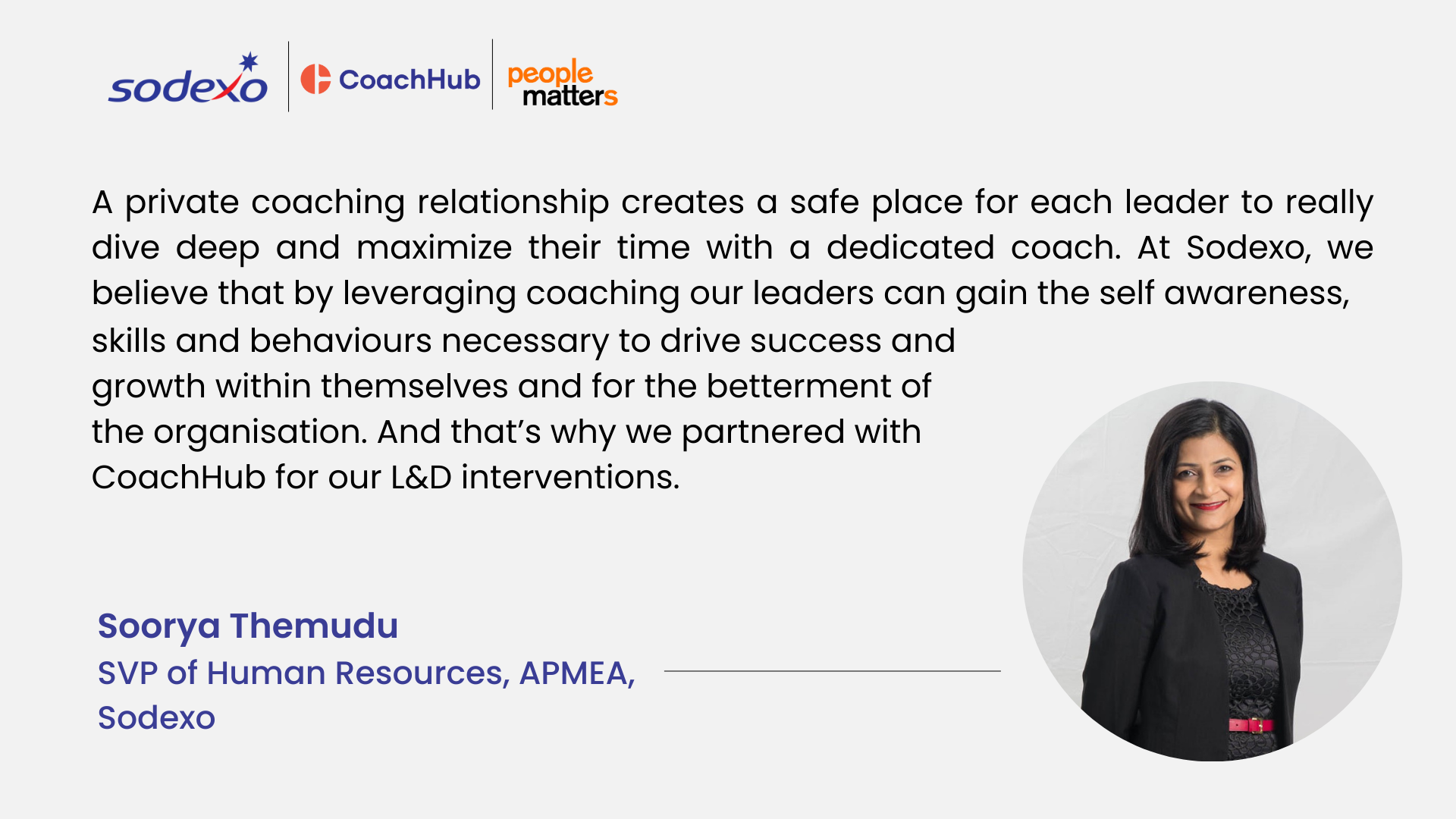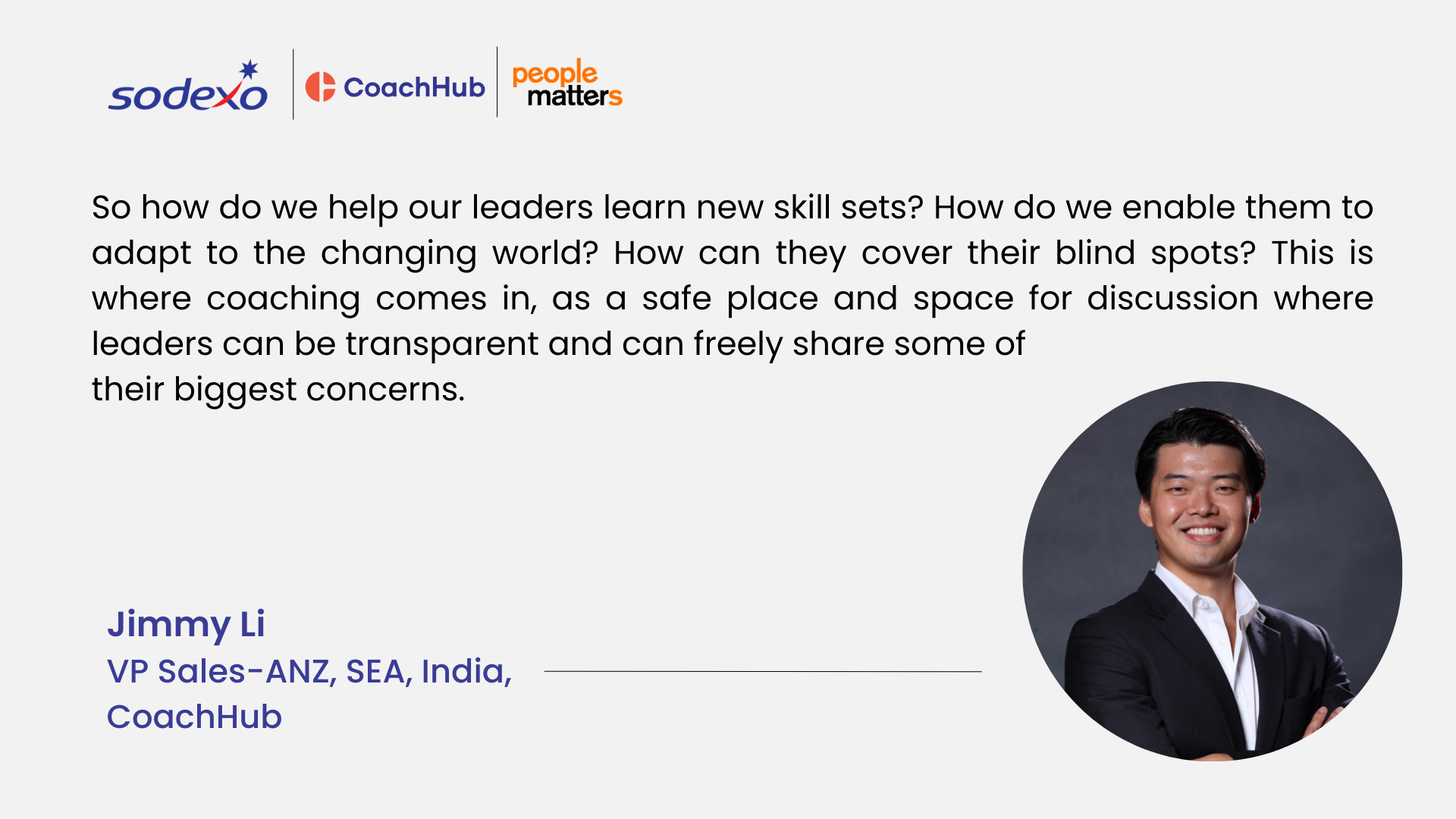Empowering agile, resilient and disruption-ready leadership: Insights on the power of coaching

Leaders are the cornerstone of building businesses that will thrive during these disruptive times. As we embark on rapid digital transformation and increasingly work with a remote or hybrid workforce, having the right people steering the ship forward will be critical. Research also highlights that organisations which invest in leadership and talent development are 2.4 times more likely to be financially successful than those that do not.
Of the several learning strategies, when it comes to coaching especially, it not only impacts business performance but also talent retention. Organisations with a strong coaching culture retain 62% of top performers, compared with 28% of those that don’t. This brings us to a critical turning point where we must explore how coaching can empower your leaders to navigate the complexities of change while motivating and engaging with your workforce to grow in the face of challenges.
To unlock exclusive insights on this, we are in conversation with Soorya Themudu, SVP of Human Resources, APMEA at Sodexo and Jimmy Li, VP of Sales-ANZ, SEA, India at CoachHub. Here are some key takeaways.
Critical capabilities to navigate this uncertainty
While Soorya outlines several leadership traits that will be fundamental to leading organisations in these unprecedented times, she first emphasises self-awareness. “I always tell this to my teams and all employees at Sodexo that self-awareness is the key to the car. This is because it enables individuals to understand their strengths and their weaknesses, their values, beliefs and biases, which can help them identify areas for improvement,” she shares.
With the world of work repeatedly facing crises, emotional intelligence will also be a critical capability to manage one’s own emotions while building trust, empathy and rapport at the workplace. Soorya also believes in the power of fostering collaborative relationships across teams, functions and countries. Undoubtedly, this calls for listening actively and negotiating win-win solutions. Leaders must become resilient, develop a growth mindset and respond quickly to changing market conditions, customer needs and evolutions in technology. And finally, comes innovation.
Soorya highlights, “Leaders must create a culture of innovation that encourages experiments, risk-taking and continuous learning. This includes identifying and pursuing new business opportunities, developing products and services and continuously improving processes and systems.”

Cultivating a safe space for growth with coaching
Jimmy points out an interesting similarity between developing our leaders and people with raising a teenager. Both situations tend to confront the same challenges, especially when it comes to preparing both leaders and teenagers for what is unprecedented. In the case of leaders especially, there has been a massive transformation in working styles and employee expectations. Navigating this unknown terrain can be difficult, especially because past experiences can no longer provide all the answers.
Coaching conversations offer leaders a confidant who’s an expert in the field and has dealt with similar issues in the past. They can indeed support leaders in brainstorming and problem-solving in this unpredictable business climate. It’s similar to how parents bring up their children, by constantly seeking advice from those who’ve faced these experiences before.

The power of personalised coaching
“Coaching is an effective catalyst for unlocking leadership potential and empowering them to lead with purpose and authenticity,” said Soorya as she spoke about the importance of continuous leadership development. At Sodexo, they strongly believe that this growth journey should be customised because each leader comes with a unique perspective, challenges and learning styles.
Jimmy also adds to this and highlights the value of personalised coaching in the organisational growth strategy, in empowering people to stay at the forefront of innovation. “89% of our coachees have applied something new from their coaching sessions, and that’s the whole point of investing in your people. They find value in it too and are taking decisive action,” he adds.
When running the CoachHub pilot program for 12 months, they received positive feedback. Not only did Sodexo’s coachees give a 4.9/5 satisfaction rating, but 70% of them witnessed an impact on their behaviours and actions, while another 66% also felt safe to practise new behaviours in the workplace. Inevitably, the company kickstarted a second cohort. There were other factors to this decision, including express implementation of their digital platform within 4 weeks, thereby reducing the administrative burden of managing coaches. Additionally, it offers 24/7 access to a pool of 3,500 top coaches worldwide that mirrors the diversity and richness of experience that defines Sodexo’s leadership.
Enabling leaders to strengthen employee involvement and engagement
However, organisations cannot overlook the challenges of gaining active participation when designing programs for their people. “Engaging employees in the talent and leadership development process can break down silos between HR, L&D and operational teams, and it will also help foster a culture of continuous learning and development.” shares Soorya.
Another dimension of ensuring this active employee involvement also rests in the role of managers. This is especially true, given that some of the most meaningful interactions employees might have are with their direct managers or leaders. Jimmy also recalls a statistic he came across, which reported, “70% of employees felt that their manager or their leader had more of an impact on their emotional well-being versus their therapist.” This is a startling number which is bound to take greater significance in a remote or hybrid workplace.
Employee disconnect is indeed a factor when it comes to attrition and while there are multiple causes that contribute to this, we cannot overlook the power of leaders. With coaching interventions, leaders can stay one step ahead in navigating this unfamiliar environment, staying up to date with the latest trends and technologies and engaging better with their people.
“Whether it’s DE&I or becoming purpose-driven or even accelerating engagement, this shouldn’t boil down to personality. We need to bring a scientific approach to leadership development so that it's scalable and consistent across the line. It will define the culture that we're building within our companies,” advises Jimmy. And that’s exactly what CoachHub promises with their scientific approach to development through coaching.
Crafting a culture of continuous learning and compassion
When asked about one piece of advice on building disruption-ready organisations, Soorya talks about the importance of building a culture of continuous learning by being open to learning, unlearning and relearning. Organisations must anticipate the skills and capabilities that will be required in the future to remain competitive. Embracing change and leveraging technology to deliver L&D programs more efficiently and effectively will also be vital. “A range of digital tools such as development platforms like CoachHub, virtual reality, simulations and social learning networks can be used to support employee development,” she adds.
A culture of compassion also becomes equally important to absorb change and impact during these unprecedented times. When an employee joins an organisation, it becomes vital that leaders make the most of their people’s experience during their time there. Setting your people up for success in this ever-changing environment and designing strategies that will result in the least amount of disruption to the company and to your employees are critical directions we need to steer towards.
And finally, Jimmy emphasises, “If we're not leading with compassion, or moving forward with a mindset of always developing ourselves as Soorya mentioned, it's going to be difficult for any organisation to grow in the future.”
Indeed, leadership development is critical to the continued success of an organisation, and when it’s carried out through coaching, one is bound to witness greater collaboration, innovation and resilience.















